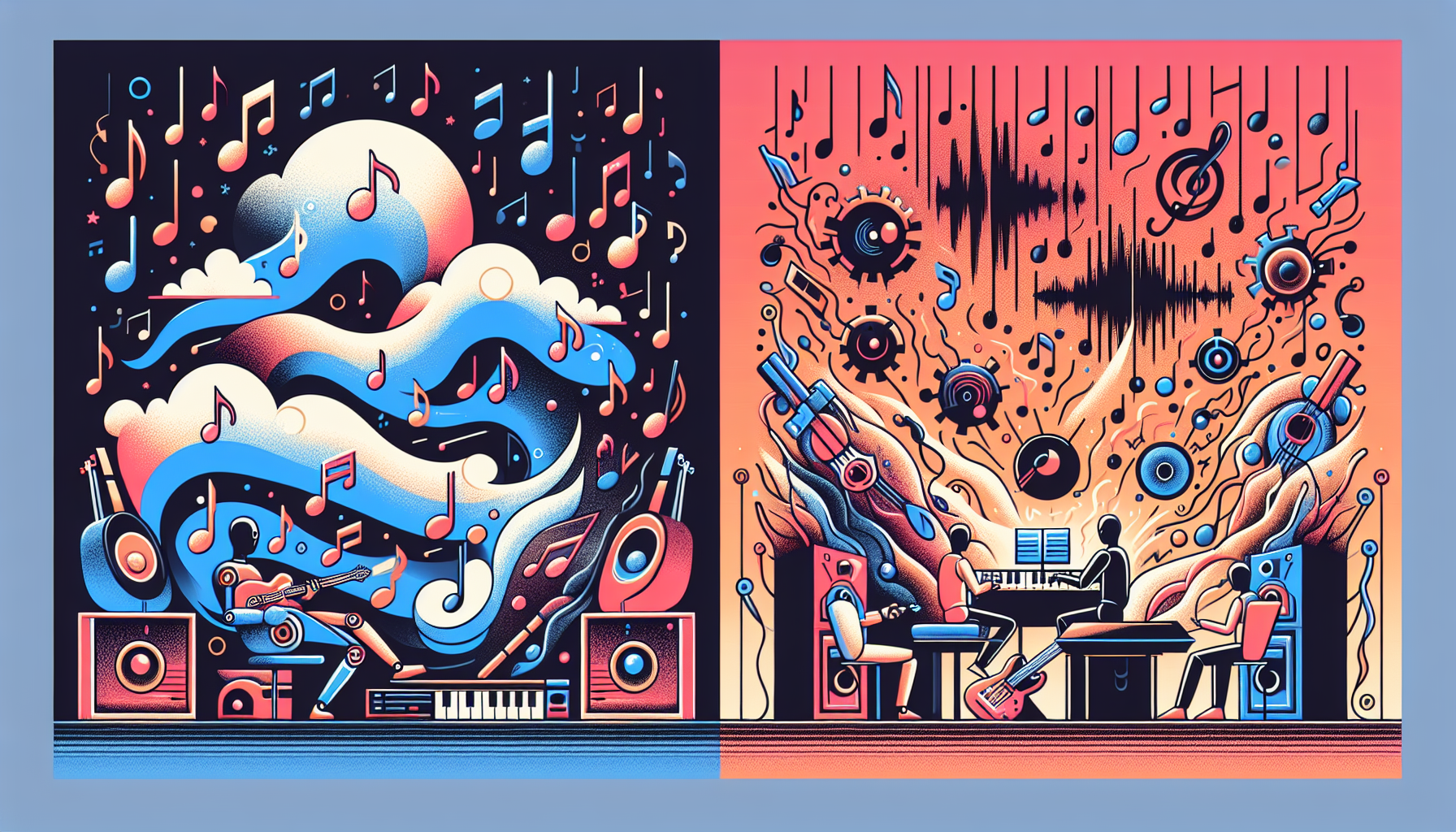
AI’s Role: Friend or Foe?
AI in the music industry is like a superhero with an ambiguous backstory. On one hand, it’s a powerhouse of potential, unleashing creative superpowers that musicians could only dream of. But on the flip side, it stands as a possible contender to human creativity, potentially replacing the very soul and emotion that define music. It’s a melodious paradox that has artists’ eyebrows raising higher than a soprano’s high note.
Musicians like Sanam Puri underscore the essence of music as a realm of emotion and connection—something that AI, however advanced, simply can’t mimic. “Music is the language of the heart, Puri says. An algorithm just doesn’t know heartbreak! The human touch in tunes is irreplaceable, and that’s what makes this debate as heated as a summer music festival.
Cruising the Creative Process
When it comes to the creative process, the Recording Academy’s CEO, Harvey Mason Jr., has laid down the law: AI can assist, but humans hold the reins. Only flesh-and-blood creatives are eligible to submit for those golden Grammy statuettes. That’s like saying AI can be the sous-chef, but the main course—music—needs a human chef to whip it up. Puri sounds up for this arrangement; as long as his guitar does the talking, he doesn’t mind a little digital help in the back kitchen.
Artists like Devante, however, are not quite ready to trust the robot, even with the salad prep. For them, AI in music feels like inviting a wolf into the sheep’s pen. Fears mount over AI potentially replacing human creativity, and the industry is buzzing louder than a synthesizer on full blast. Copyright and royalties have become the stage for debates fiercer than a hip-hop battle, and artists are demanding answers faster than a drummer’s paradiddle.
Guardrails, Please!
Enter the Human Artistry Campaign, co-launched by none other than Harvey Mason Jr. This initiative calls for robust safeguards around AI in music, keeping those creative tracks human-centered. Think of it as a musical knight wielding a lance to protect the fair maiden of human artistry. With similar gusto, legislative knights are brandishing their swords with the ELVIS Act and No AI Fraud Act, ensuring no digital mischief usurps the voices and likenesses of beloved artists. Imagine a world where even Elvis remains in the building, safe from AI imitators.
AI is currently mixing and mastering tracks, bending sounds like a wizard with audio spells. Yet, as bands like Sanam strive to stay true to their harmonies while dabbling in AI trends, there’s a pursuit to balance both worlds—a bit like rocking out onstage while keeping an eye on the DJ booth. Meanwhile, the industry watches nervously, trying to ensure that human artists receive the credits and payments their melodies merit. Clearer protections are needed to ensure that AI doesn’t end up stealing the show, leaving the artists out in the cold (and out of the charts).
The future of AI in music may be uncertain, but one thing is clear: human creativity and its emotional core must remain front and center. As artists navigate this techno-treacherous terrain, they seek the sweet spot where technology enhances rather than eclipses their melodic marvels. So, as the curtain rises on AI in the music industry, everyone—from rock stars to roadies—will be keeping a close ear on how this symphony of man and machine unfolds.






